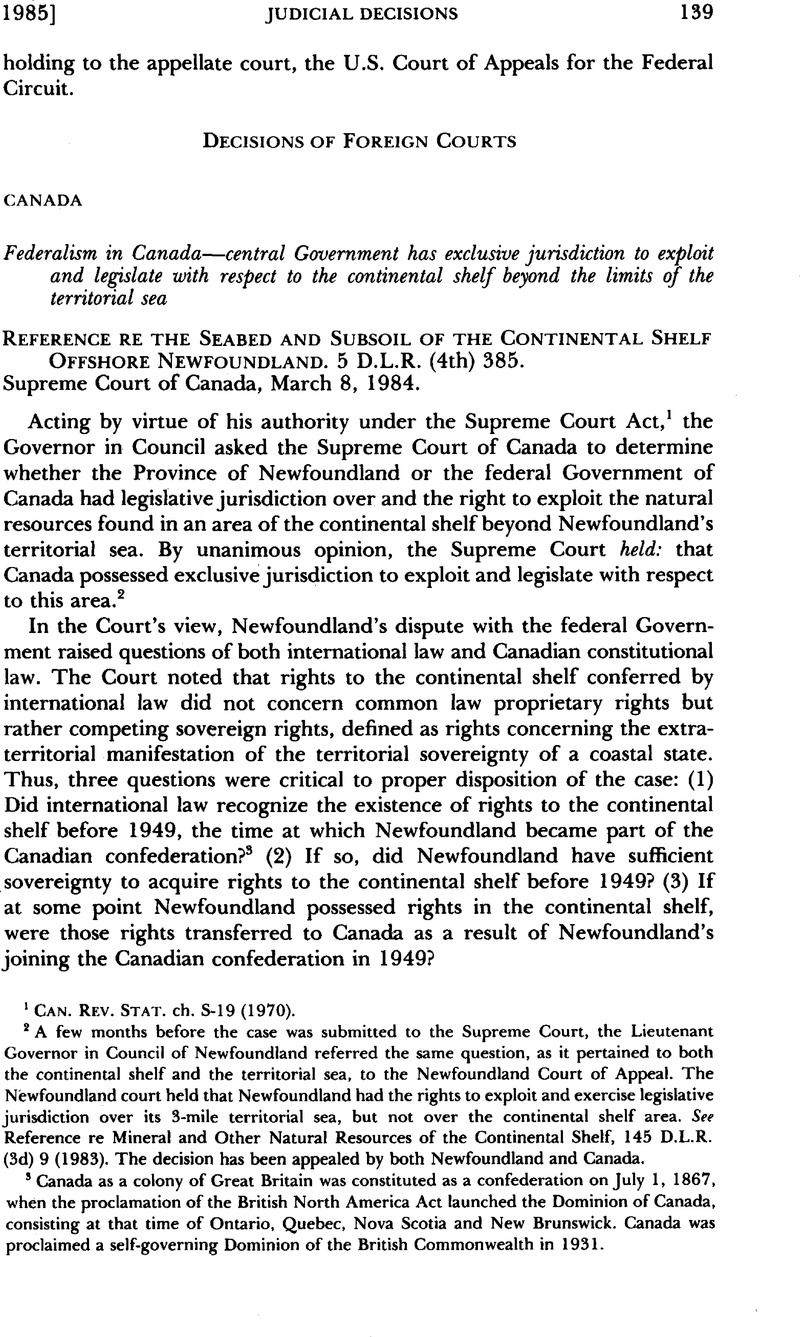No CrossRef data available.
Published online by Cambridge University Press: 23 March 2017

1 Can. Rev. STAT. ch. S–19 (1970).
2 A few months before the case was submitted to the Supreme Court, the Lieutenant Governor in Council of Newfoundland referred the same question, as it pertained to both the continental shelf and the territorial sea, to the Newfoundland Court of Appeal. The Newfoundland court held that Newfoundland had the rights to exploit and exercise legislative jurisdiction over its 3-mile territorial sea, but not over the continental shelf area. See Reference re Mineral and Other Natural Resources of the Continental Shelf, 145 D.L.R. (3d) 9 (1983). The decision has been appealed by both Newfoundland and Canada.
3 Canada as a colony of Great Britain was constituted as a confederation on July 1, 1867, when the proclamation of the British North America Act launched the Dominion of Canada, consisting at that time of Ontario, Quebec, Nova Scotia and New Brunswick. Canada was proclaimed a self-governing Dominion of the British Commonwealth in 1931.
4 15 UST 471, TIAS No. 5578, 499 UNTS 311.
5 1969 ICJ Rep. 3 (Judgment of Feb. 20).
6 5 D.L.R. (4th) 385, 417.
7 In 1926, the then existing colony of Newfoundland participated with Great Britain and other British Dominions in the Imperial Conference. The Conference produced the Balfour Declaration which recognized, under British Imperial constitutional law, that the Dominions (including Newfoundland) possessed external sovereignty. Subsequently, at the request of the Newfoundland Assembly, the British Parliament enacted the Newfoundland Act of 1933, which, according to the Court, effectively transferred Newfoundland’s governing sovereignty to the United Kingdom.
8 5 D.L.R. (4th) at 410.
9 See Reference re Ownership of and Jurisdiction over Offshore Mineral Rights of British Columbia, 1967 S.C.R. 792. In that case, two questions were addressed by the Court: (1) whether British Columbia had jurisdiction over the territorial sea contiguous to its shoreline, and (2) whether it had jurisdiction over the adjoining continental shelf. It was held that British Columbia (unlike Newfoundland) did not have jurisdiction over the territorial sea because it had failed to assert its claim to that area before its admission into the Canadian confederation in 1871. The Court therefore held that the rights to the territorial sea were vested in Canada, which also held the rights in the continental shelf area beyond the territorial sea. Since Newfoundland, unlike British Columbia, had jurisdiction over the territorial sea, the Court in the instant case examined international law pertaining to the continental shelf apart from the territorial sea issue.